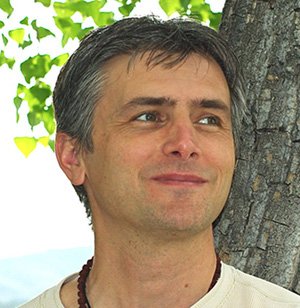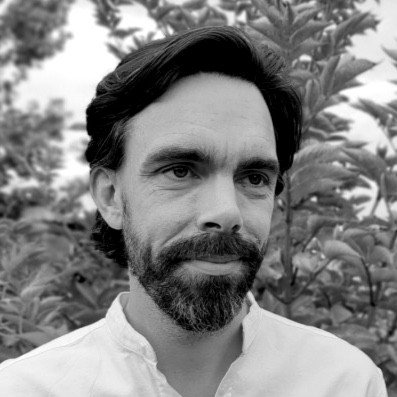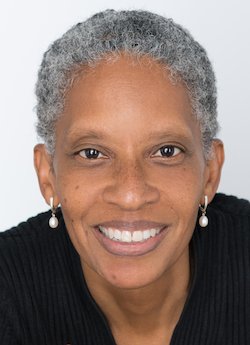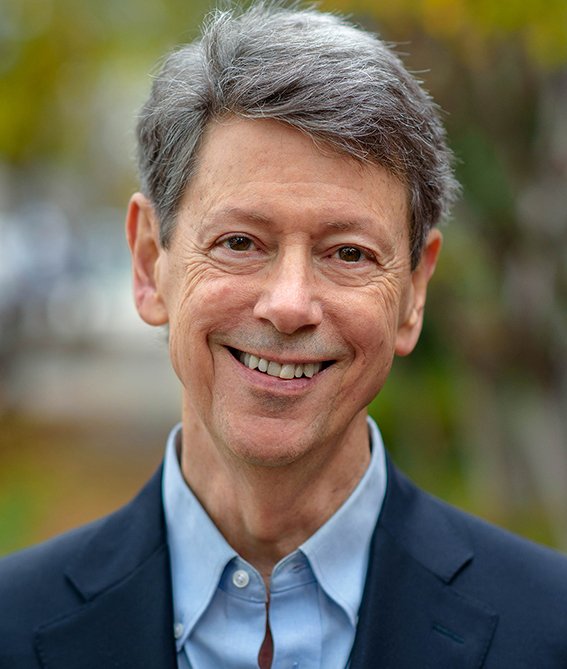Please rate and review The Yoga Hour on your favorite podcast player. It really helps us to be discovered by more listeners and we appreciate the feedback.
The Life Changing Inspiration of Autobiography of a Yogi
Why has reading Paramahansa Yogananda’s book Autobiography of a Yogi changed so many lives? Join author Philip Goldberg as he discusses this important book, which he calls “An iconic memoir of an authentic yogi.”
Philip Goldberg has been studying the world’s spiritual traditions for more than 50 years. He is an illuminating and entertaining public speaker and workshop leader, a spiritual counselor, meditation teacher, and an ordained Interfaith Minister. Phil is the author or co-author of numerous books, including America Veda, Roadsigns on the Spiritual Path, The Life of Yogananda, and Spiritual Practice for Crazy Times. He contributes regularly to Spirituality & Health magazine online. Phil is the host of the popular Spirit Matters podcast
THE YOGA HOUR TEAM COMMENTS: What a delightful conversation with Phil Goldberg on the Yoga Hour. I could have listened for hours. Philip Goldberg so easily and richly shares his knowledge of Paramahansa Yogananda, the book 'The Autobiography of a Yogi' and Yoga philosophy in general. I found his explanation especially enlightening of why The Autobiography of a Yogi is such a classic book and so influential in America. Phil talked about how few Yogi's write about their own life and that it is a compelling story about Yogananda's life. He went on to state that Yogananda also includes stories of other people, yogis and mystics from India and America as well as a discourse on Yoga that is good, concise and informative. Phil shared that the majority of people that he has talked with over the decades that have chosen to explore or teach Eastern spirituality and Yoga state that 'The Autobiography of a Yogi' was the most influential book in getting them started. He encourages people "...to read the book if they haven't read it and to re-read it if they have because there is always something new to learn".
DR. TRUJILLO’S COMMENTS: It is always such a pleasure to have Phil as a guest on The Yoga Hour, and to discuss Paramahansa Yogananda with him in this program. He is so knowledgeable about the spread of yoga philosophy in America as well as the life of Yogananda, and he makes these topics so accessible. I really enjoyed how our conversation wove back and forth between Yogananda’s book Autobiography of a Yogi, and Phil’s book The Life of Yogananda, as the two books are so complementary. I appreciated our focus on the experiential nature of the philosophy of yoga practice and meditation, how the yoga approach doesn’t rely on blind faith, but is rather an encouragement to try these techniques out for oneself and to see the results in our own life. I agree with Phil’s encouragement to listeners to read the Autobiography if they haven’t yet done so, or to re-read it if they have read it in the past. There is always something new and inspiring to find there.
Sacred Poetry: Insight and Inspiration
Listening to and reading sacred poetry can lift us up, inspire our days and take us to a deeper understanding of the Divine. Ivan Granger is a poet and editor of The Longing In Between: An Anthology of Sacred Poetry from Around the World. Listen in and be inspired!
Ivan Granger, the founder and editor of the Poetry Chaikhana, a publishing house and online resource for sacred poetry from around the world. He is the author of Real Thirst: Poetry of the Spiritual Journey. He is also the editor of The Longing in Between: A Poetry Chaikhana Anthology, and This Dance of Bliss: Ecstatic Poetry from Around the World. His poetry and translations have been included in several magazines and anthologies.
THE YOGA HOUR TEAM COMMENTS: This program with poet Ivan Granger and Dr. Laurel Trujillo was thought provoking. It started with the poem by Gabriel Rosenstock that inspired the title of his anthology of spiritual poetry, The Longing in Between.
A star
A tree
And the longing in between
This began an insightful conversation about the significance of poetry as inspiration on our spiritual path. Ivan talked about poetry being a verbal art. When the poem is read out loud the breath affects consciousness. The reader shares the breath rhythm of the author. Ivan’s last thought was his conviction that inspiration is something essential and fundamental in the flow of life and should be a daily practice.
DR. TRUJILLO’S COMMENTS: I really enjoyed our conversation about sacred poetry, including the poems that Ivan Granger and I each read aloud. I appreciated his description of the relationship between longing and union in sacred poetry, that it is a spectrum where these two aspects are connected. I think this was demonstrated by several of the poems that we shared. We discussed how the words “yoga” and “religion” both mean union. I so enjoyed his description of poetry as a magnetic pole, one that allows meaning to gather as we continue to reflect on the poem over time.
Calm the Storm of your Stressful Life: Finding the Energy to Heal
Discover simple, practical and gentle tools to truly heal from your life’s traumas and stressors. Lauren Walker, author of The Energy to Heal, provides step by step practices using yoga and energy work to help us access our body’s innate healing for a calmer, freer and fulfilled life.
Lauren Walker is the author of The Energy to Heal: Find Lasting Freedom From Stress & Trauma Through Energy Medicine Yoga. She previously published, Energy Medicine Yoga: Amplify the Healing Power of Your Yoga Practice and The Energy Medicine Yoga Prescription. Both books won the Nautilus Silver award for best Mind/Body publication. She’s been teaching yoga and meditation since 1997 and created Energy Medicine Yoga while teaching at Norwich University. She teaches EMYoga across the US and internationally and has been featured many times in Yoga Journal, Yoga, Digest, and published a feature article about her yoga work in The New York Times. In 2016 she was named one of the top 100 most influential yoga teacher in America.
Website: EnergyMedicineYoga.net
#yoga #energymedicine #energyhealing #EMyoga #prana #energyblock #kriyayoga
THE YOGA HOUR TEAM COMMENTS: Lauren Walker presented clear and easy to understand explanations of how we all have access to heal ourselves when we understand and embrace the fact that all life is made up of energy and we can learn to use that energy to heal ourselves of stress and trauma. Lauren reminds us that Yoga is about the use of energy through using the breath/prana and postures/ asana as well as directing the flow of our own consciousness. She draws on ancient healing teachings from around the world to offer many approaches to healing. I loved her simple explanation about how stress, injury and trauma become blocks to the natural flow of our energy and then she offers easy practices to help heal and open all channels of energy in our body in order to live more vibrant lives.
DR. TRUJILLO’S COMMENTS: I really enjoyed our conversation about Lauren Walker’s book The Energy to Heal. She is doing very unique work in combining yoga practices like postures (asana) and breathing techniques (pranayama) with energy work. Lauren has a lovely way of making energy work accessible to everyone, helping us to realize that we already do things to adjust our energy, like rubbing our temples when we have a headache. I appreciated our conversation about what causes energy blocks in the body: as she said, “Life”, including stress, trauma, toxins, emotions, pain, or patterns of muscle tension. We reviewed several simple techniques for people to work with their energy, things that are easy to do and that can make a difference. We truly all do have the energy to heal within ourselves, and can help our bodies to use that energy more efficiently.
Friendship as a Radical Practice for Social Change
How can friendship offer healing and transformation for ourselves and for the world? Author and spiritual teacher, Kate Johnson shares simple strategies, grounded in ancient teachings, to help us embody our deepest values and show us the importance of working toward the collective well-being in all our relationships.
Kate Johnson is an acclaimed teacher, writer, and facilitator. She leads programs and retreats integrating meditation, somatics, social justice and creativity around the world and online. She works with individuals and organizations seeking greater sustainability through the cultivation of wise relationships. She is the author of the book we are discussing today, Radical Friendship: Seven Ways to Love Yourself and Find Your People in an Unjust World.
Website: KateJohnson.com
#spiritualfriendship #selfcompassion #radicalfriendship #kriyayoga #socialjustice
THE YOGA HOUR TEAM COMMENTS: This was another important program about social justice but this time in the context of friendship with others and friendship with ourselves and how those friendships can transform the world. Kate Johnson defines these friendship as quality. She says it is unconditional friendliness, unconditional positive regard and that the friends genuinely want the best for each other. She goes on to say that radical friendship is where we commit to show up for our own and each other’s liberation, in a spiritual sense and in a human sense. She spoke quite a bit about how we can be better friends with others when we can be a better friend to ourselves. When we accept ourselves for being who we are, we can accept others no matter what their flaws. I highly recommend this podcast for those who want to receive from and give to deep friendships and see those friendships as a way to contribute to a better world.
Live a Spiritually Conscious Life: The Way of the Yogi - Part 2
The second limb of yoga consists of five ethical practices called the Niyamas. David McGrath, spiritual teacher and author of the book The Yogi’s Way: Living in Accord with the Yamas and Niyamas, shares how the teachings of Kriya Yoga, specifically the practices of the Niyamas offer us a practical way to live a spiritually conscious life.
David McGrath is dedicated to sharing the philosophical and psychological principles, and practices of yoga with a focus on promoting the holistic capacity of Kriya Yoga to provide insight into what it means to be human and how we can appreciate and live in tune with the fundamental nature of life. David was ordained by Mr. Roy Eugene Davis, a direct disciple of Paramahansa Yogananda, as a minister within the tradition of Kriya Yoga, in 2011. He offers instruction and guidance through one-to-one consultations, organized retreats, online programs, public seminars, workshops, and written publications. David imagines a world awakened in oneness and invites people to follow a path which will allow them to clarify their conscious awareness.
WEBSITE: www.davidmcgrath.ie
THE YOGA HOUR TEAM COMMENTS: Part 2 of this interview with David McGrath was a wonderful discussion on the niyamas following up from part 1 on the yamas. He explained how the yamas and niyamas support each other. While the yamas are practices that deal with the outside world, the niyamas are practices that disconnect with the outside world to give space to look within ourselves. Laurel and David agreed that meditation is a key practice to disengage with the ego concerns and go within to experience contentment. It is also a key part of Self-study, the second of the three pillars of Kriya Yoga. Self-study supports us in moving into the space of the witness. I was inspired by what he shared at the end of the program, wherever one is in the practice of yoga, it is extremely useful to disconnect, find silence and stillness. There you can know yourself just as a witness. This was an excellent interview and shouldn't be missed.
#yoga #niyamas #contentment #santosha #selfstudy #svadhyaya #eightlimbsofyoga #meditation #yogasutras
DR. TRUJILLO’S COMMENTS: After my discussion with David McGrath on the Yamas in Part One; the ethical principles about how we relate to others, it was useful to turn our focus within and discuss the five Niyamas: cleanliness, contentment, self-discipline, self-study, and self-surrender. As we discussed, these practices gain depth and subtlety the longer we engage with them, and practicing them deepens our understanding of the practice of the Yamas, or restraints, as well. I particularly appreciated our deeper conversation about two of the Niyamas, contentment and self-study. David’s exercise of contemplating words to decide how much they describe contentment was thought-provoking. He lists happy, balanced, still and curious as words that may describe contentment, and I appreciated our discussion that happiness and contentment are not necessarily the same thing. We both agree that meditation is one key practice that helps us with both contentment and self-study.
Live a Spiritually Conscious Life: The Way of the Yogi - Part One
The first limb of yoga consists of five ethical principles called the Yamas. How do these Yamas offer us a practical way to live a life that is worthy of us? Author and Kriya Yoga teacher, David McGrath shares how these principles and practices guide us to live in the highest way, a yogic life. David is the author of the book being discussed in this program, The Yogi’s Way: Living in Accord With The Yamas and Niyamas.
David McGrath is dedicated to sharing the philosophical and psychological principles, and practices of yoga with a focus on promoting the holistic capacity of Kriya Yoga to provide insight into what it means to be human and how we can appreciate and live in tune with the fundamental nature of life. David was ordained by Mr. Roy Eugene Davis, a direct disciple of Paramahansa Yogananda, as a minister within the tradition of Kriya Yoga, in 2011. He offers instruction and guidance through one-to-one consultations, organized retreats, online programs, public seminars, workshops, and written publications. David imagines a world awakened in oneness and invites people to follow a path which will allow them to clarify their conscious awareness.
WEBSITE: www.davidmcgrath.ie
THE YOGA HOUR TEAM COMMENTS: It was a pleasure to listen to Part One of this discussion with David McGrath on his book, The Yogi's Way, concentrating on the yamas, the first limb of the eight limbs of yoga. The Yamas are how we relate to others and to the world. David began reflecting that, as yogis, we know how well we are doing in our practice by how well we are doing in life. It's a feedback loop. As we go deeper, it is like peeling off another layer. The book is set up to allow the reader to peel off the layers over a period of time to help us experience each of the yamas in an ever more subtle way. I appreciated his view of Ahimsa or harmlessness, as attracting the unified expression of love, to allow life to flow without harming it; seeing compassion as an inside job, but also an outside job, allowing us the opportunity to connect and care. David and Laurel also discussed how Satya, truthfulness, is looking from the vast Absolute Truth of Oneness the doesn’t change to what it means to us in this moment. In the moment, it is a process of continuously discerning how to relate to life for the betterment of every single aspect of life. I look forward to Part Two where the discussion will be about the the niyamas, how we look inward.
DR. TRUJILLO’S COMMENTS: In both David’s book and in our conversation I appreciated the opportunity to dive more deeply into the ethical principles that form the first limb of the 8 limbs of Yoga. As we discussed, the first Yama of Ahimsa, or harmlessness, comes from the deep underlying principle of Yoga that everything in the outer world is a manifestation of the underlying Oneness, of Supreme Consciousness. When we harm others we are also harming ourselves. I also appreciated the exercise of looking at different words and deciding how much they described Ahimsa, words like calm, attentiveness, empowering, and my favorite, bravery. Our discussion of the relationship between Harmlessness and Truthfulness was enriching.
Compassion, Community and Kinship: Fostering Spiritual Interconnection
How can we, as individuals, contribute to the repair of the world and ourselves in this polarized time? Dr. Pamela Ayo Yetunde, author of Casting Indra’s Net, asks the questions “What happened to us? Why do so many choose brutality over mutuality? In this program she shares how we can do the necessary inner work to live as spiritual kin, caring for each other amidst global crisis and suffering.
Dr. Pamela Ayo Yetunde is a lawyer and has a doctor of theology in pastoral counseling. She is an activist, lay Buddhist teacher, professor, pastoral counselor, and writer. She is the co-editor of Black and Buddhist: What Buddhism Can Teach Us About Race, Resilience, Transformation, and Freedom as well as the author of two volumes on pastoral care. Her articles appear in Buddha-dharma, Lion's Roar, Journal of Buddhist-Christian Studies, Religions and Feminist Theology. She also serves as an associate editor for Lion’s Roar magazine and has been featured on NBC.com, the Tamron Hall Show, and Sisters of AARP, and she appears regularly in major online summits concerning spirituality and caregiving.
WEBSITE: PamelaAyoYetunde.com Facebook: Pamela Ayo Yetunde
#indrasnet #yoga #civility #goldenrule #kinship @pamelaayoyetunde
THE YOGA HOUR TEAM COMMENTS: Dr. Ayo Yetunde said that she wrote this book, Casting Indra's Net, because she is concerned about how we are treating one another. She asks the questions “What happened to us? Why did many of us choose brutality over mutuality?” Those questions really struck me. She says "It is very dangerous now and I didn’t want to be one of those who didn’t say anything." I so appreciate how she brings in the spiritual teachings of the major spiritual traditions that teach about how we are all connected and what happens to one, happens to all. These spiritual teachings offer us tools to overcome this time of perceived separation. Dr. Yetunde reminds us that we are all inextricably part of Indra's net. There is no denying it. We all need to step up and recognize our place in Indra's net. We are supporting and are supported by each other. Ayo spoke so eloquently and clearly about the trouble we could be in if we don't begin to step up and speak up in a truthful but harmless way. That is what she means by the word "casting". This is another important program about how spiritual practice opens up our hearts and leads us towards compassionate action.
DR. TRUJILLO’S COMMENTS: I so appreciated having Dr. Pamela Ayo Yetunde as a guest on The Yoga Hour to discuss her important book Casting Indra’s Net: Fostering Spiritual Kinship and Community. The Vedic story of Indra’s Net describes a network over the Earth where each point where the fibers cross contains a jewel that represents each of us. This story is contained in both Buddhist and Yoga traditions shows our interconnection, how we belong to something greater than ourselves, as well as representing our precious inner light. We discussed the need for civility. Civility, in this context, doesn’t mean being “nice" but rather being able to be compassionate, to listen deeply and to affirm each others fear and concerns and then come to a negotiated solution. I appreciated Dr. Yetunde’s “Platinum Rule” which goes beyond the Golden Rule of “treat others the way you’d like to be treated” to “treat others the way they need to be treated”.
Foster Love and Build Connection to Make Great Relationships
How can we foster healthy and fulfilling relationships of all kinds? Author and psychologist Rick Hanson offers simple but powerful ways to improve relationships with our family, friends and with challenging people so that we can cultivate kindness and communicate more skillfully.
Rick Hanson is a psychologist and has written and taught about the essential inner skills of personal well-being, psychological growth, and contemplative practice – as well as about relationships, family life, and raising children. Dr. Hanson is the author of several best-selling books on these topics, including the book we are discussing today- Making Great Relationships: Simple Practices for Solving Conflicts, Building Connection, and Fostering Love. He is a Senior Fellow of the Greater Good Science Center at UC Berkeley, and has been invited to speak at NASA as well as at Oxford, Harvard, Stanford, and other major universities. Dr. Hanson offers online classes and programs as well as a free online weekly meditation program. He has his own podcast, Being Well, with his son Forrest Hanson.
WEBSITE: RickHanson.net
FaceBook: @rickhansonphd
Instagram: @rickhansonphd
#relationships,#makinggreatrelationships,#compassion,#meditation,#kriyayoga,#befriendyourself
THE YOGA HOUR TEAM COMMENTS: When Rick Hanson was asked why he wrote this book, Making Great Relationships he said that healthy relationships are the most important aspect of our lives—for our physical, mental, emotional and spiritual health. He said one of the most frequent issues that people come to him for, as a psychologist, is help with relationships. Through this book he wants to give us tools that support us in answering HOW to improve our relationships. Dr. Trujillo asked him about meditation and how that supports better relationships. He said that for those of us on the spiritual path, meditation is "homecoming". When we are more rooted in our "home" the harder it is to not be there and then share that energy space with others. Another inspirational and helpful Yoga Hour program that I highly recommend.
DR. TRUJILLO’S COMMENTS: The Yoga Hour team thinks that the topic of building relationships is a critical one for our world at this time, and Rick Hanson’s book Making Great Relationships is a wonderful tool for us all to build skills in this area. I enjoyed our discussion of the need to befriend oneself as a critical starting point in this effort to build better relationships. Our conversation touched on the many benefits of having good relationships on our overall health, including increased longevity. The anecdotes Dr. Hanson shared about feeding the wolf of love in our hearts instead of the wolf of hate, and the importance of not taking things personally really resonated with me. Lastly, I appreciated his description of meditation as coming home, since it certainly feels that way to me.








